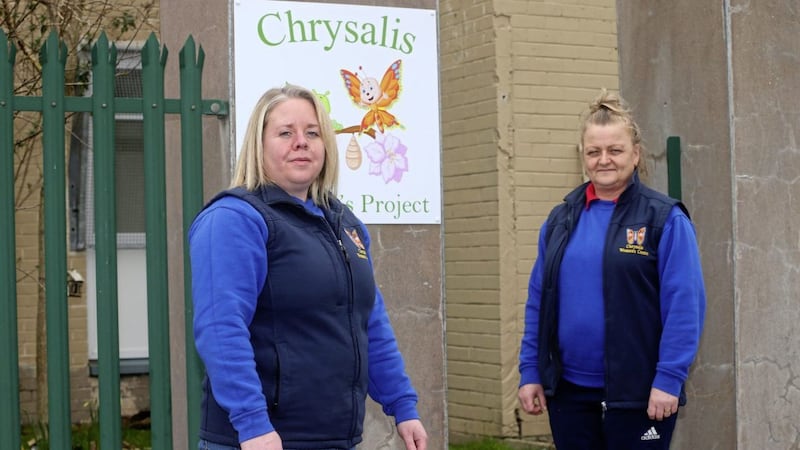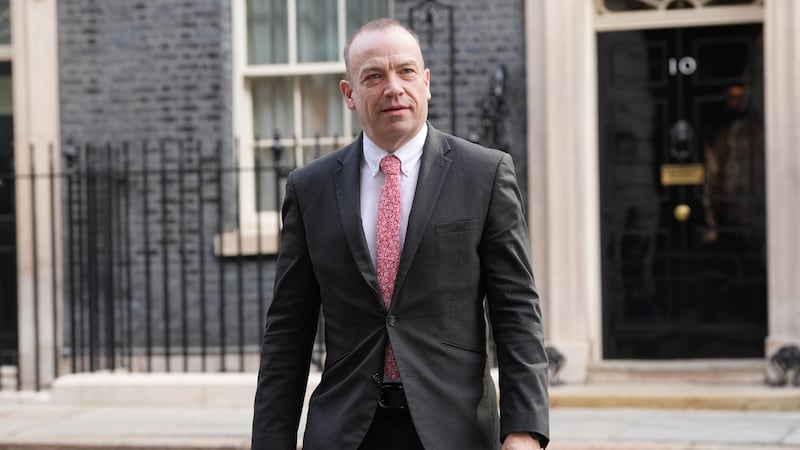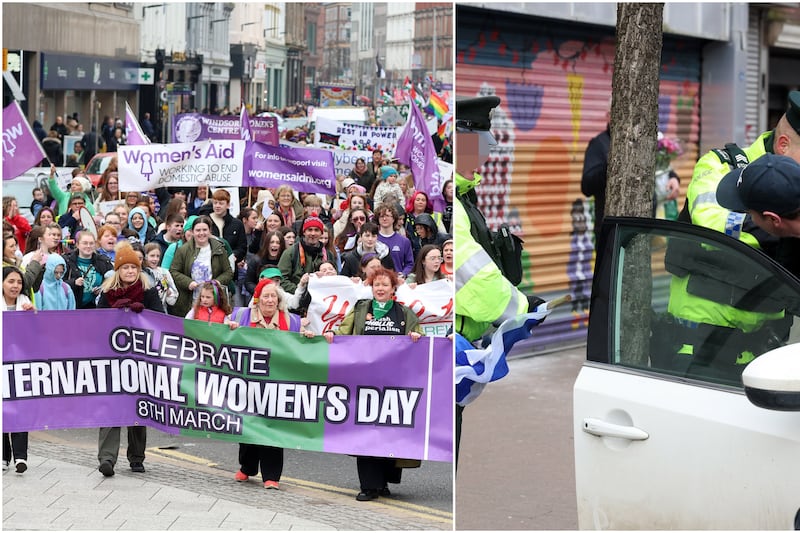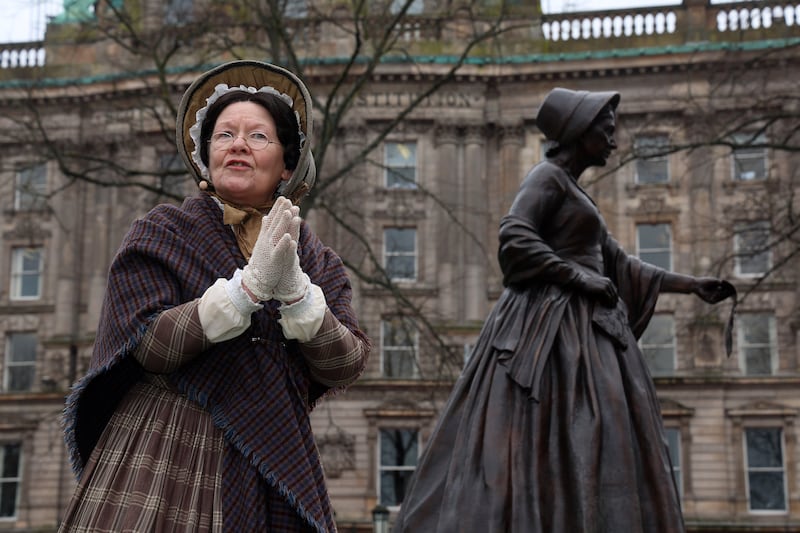"WE'VE never left," Chrysalis Women's Centre director Ruth McKeever says cheerily from its Craigavon headquarters.
Indeed a year ago, as shutters were going down across Northern Ireland, like so many social care support networks she and her small team were rolling up their sleeves and preparing for what would turn out to be the busiest they have ever been.
"We have a firm belief in being there for the community and what they need, so it was never an option for us to close our doors.
"Too many people out there - we work in a very deprived area - were going to need our support more than ever.
"My assistant director has health problems and I told her to go home and she wouldn't leave my side during the pandemic."
Ms McKeever admits that she does "look back and think how did we pull it together", with days starting at 7am and not ending until almost midnight in the early part of the first lockdown.
Chrysalis is typical of its kind, a one-stop-shop for everything from education and training and counselling to food and baby banks and child care.
This year International Women's Day events seek to "recognise `the New Phenomenal' - women who helped us through the pandemic and are making our communities better".
Karen Sweeney, director of the Women's Support Network, says all the groups have been "phenomenal" during the pandemic.
"A lot of our childcare stayed open to care for key workers' children and vulnerable children. Others started delivering food parcels and carried on doing catch-up - phoning people, calling with people, making sure the had what they needed and that they weren't isolated on their own."
Ms McKeever recalls some of her team's first visits to elderly women living on their own.
"Going and seeing these people has been quite shocking for us. We didn't realise really what it was like for older people out there that are so isolated and haven't seen anybody for months.
"It wasn't the delivery of food, it was someone coming to their door and saying `We remember you're there, we care'."
Aoife Hamilton of Employers For Childcare said the past year "has shone a spotlight on the incredible contribution women in the childcare sector have made to supporting our economy and society".
Windsor Women's Centre made huge adjustments to remain open when asked them to take the children of healthcare staff from the Nightingale Hospital.
Julie Kinnear, who is deputy manager of the crèche, said it was "very scary" during the first lockdown.
"Our staff worried about their own families but they are such an amazing bunch, they knew that we could help mums and dads from the hospital as well as other key workers who needed to work.
"All the children that we had known were now at home for lockdown and we took on 35 new children that we'd never met before.
"It was scary for the kids coming to a new place with new people all wearing PPE. We did a lot to help them understand that the masks weren't scary.
"It's a real credit to our staff that they were able to adapt so quickly and work so hard. These women went above and beyond to make sure the children are looked after and their parents can go to work."
However, childcare workers at women’s centres are facing an uncertain future as they await news of government funding, with no confirmation yet on whether they will receive the money to keep their doors open.
In Craigavon, the team of seven bolstered by volunteers have found themselves having to constantly adapt to the changing needs of women in the community.
"Some areas have calmed down, food delivery has calmed down [She is speaking to the Irish News just minutes after returning from delivering some food parcels] and the baby bank, but other areas have ramped up - mental health counselling," Ms McKeever said.
Face-to-face counselling resumed in August "because we could see what was happening".
"It started to creep up, these past four weeks have been horrific.
"There used to be six (counselling) referrals a week, now there are six a day. We have 10 trained counsellors and that is going up to 13 and two of them are being put through trauma training because a lot of people have experienced trauma, not just from Covid."
The team is bracing itself for a surge in domestic violence support.
"It's horrendous for these women trapped in their homes."
It is also preparing a Long Covid Recovery Programme, after getting a Community Lottery grant of £9,100.
The pandemic has tested women's centres like never before.
"You think, how do people do this, but I love my job and to be able to get up in the morning and know, yes you're going to be exhausted at the end of the day, but you're going and seeing these people and helping them.
"The girls that work for me are very dedicated. They had gone into flats in the area to deliver food to a young man and there was blood up all the walls and police were there.
"That young man had no food and those girls walked into those flats and delivered that food parcel. They were determined to do it.
"It has been an amazing experience and as horrendous as everything that we went through has been, I've seen a lot of positivity coming out of it."








